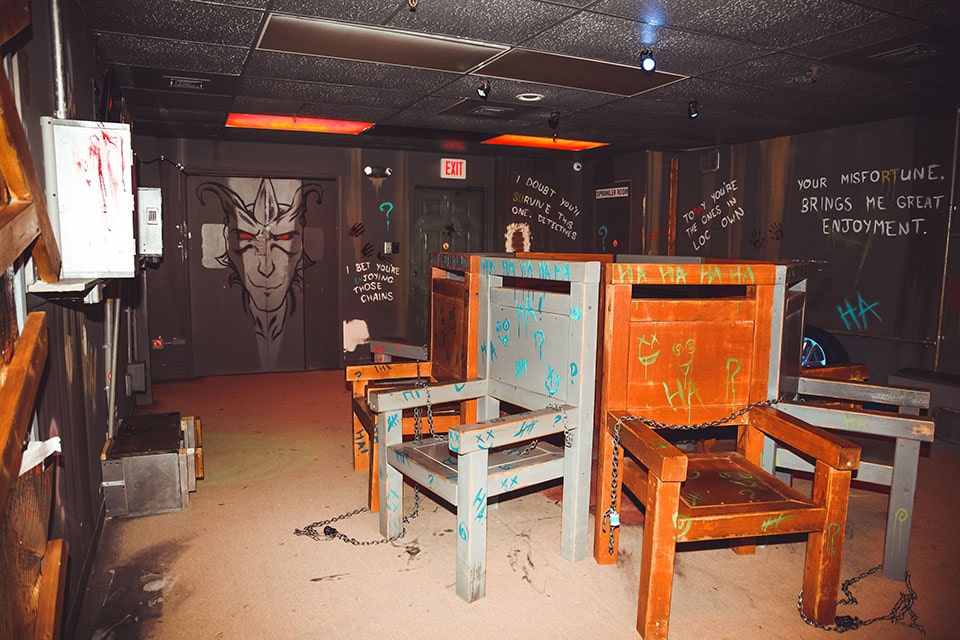Group Activities at Minneapolis Escape Room-- Perfect for Buddies and Household
Group Activities at Minneapolis Escape Room-- Perfect for Buddies and Household
Blog Article
Team Approaches: Just How to Collaborate Efficiently in a Getaway Space
Browsing the intricacies of an escape room necessitates greater than plain enthusiasm; it requires a well-coordinated strategy based in clear interaction, tactical duty jobs, and skilled time management. Teams must actively pay attention to every participant's insights, assign functions that line up with specific staminas, and preserve normal check-ins to make certain emphasis and protect against redundancy. By promoting an atmosphere that values cohesion and flexibility, groups can considerably enhance their efficiency and success rates. The nuances of these techniques can transform the experience, but exactly how specifically can they be applied to optimize the capacity for success?
Establish Clear Communication

To assist in clear communication, it is vital to mark a main point of call for info dissemination. Short, concentrated updates from each team member can keep the group notified without frustrating them with information.

Designate Roles Strategically
While clear interaction establishes the foundation for efficient synergy, assigning functions purposefully makes certain that each group participant's staminas are made use of effectively. In a retreat area situation, the time-sensitive and intricate nature of difficulties requires a well-organized method to task delegation. By identifying and leveraging individual expertises, groups can maximize their problem-solving capacities and enhance overall efficiency.
Somebody with a keen eye for information might succeed in finding hidden things, while a sensible thinker might be much better matched to resolving problems. This role often calls for solid organizational and social skills.
2nd, make certain that functions are flexible and adaptable. As brand-new challenges emerge, the team has to be able to pivot, reapportioning jobs as required. This adaptability assists keep energy and protects against traffic jams that might take place as a result of rigid function assignments.
Ultimately, a calculated method to function job not just makes the most of the strengths of each group participant however additionally fosters a cohesive setting, driving the team towards an effective retreat.
Make Use Of Diverse Abilities
Acknowledging and harnessing the diverse abilities within your group can substantially boost your efficiency in a retreat area. Each employee brings unique strengths to the table, and efficiently leveraging these abilities can speed up analytic and improve total effectiveness. As an example, a group member with strong logical skills might succeed at figuring out intricate codes or patterns, while another with keen empirical capabilities may quickly detect concealed hints that others may neglect.
Motivate group participants to articulate their insights and ideas quickly, guaranteeing that all potential services are thought about. Furthermore, assigning tasks that line up with each member's strengths can prevent bottlenecks and guarantee that progress is continuous.
Moreover, variety in abilities often converts to variety in assuming designs, which is very useful in an escape area setting. While some difficulties may require logical reasoning and accuracy, others might benefit from imaginative and side read review reasoning. By identifying and leveraging this diversity, teams can address a more comprehensive variety of difficulties much more effectively, thus boosting their opportunities of a successful retreat.
Manage Time Effectively
First, allot initial minutes for a quick study of the area. Determine noticeable challenges and divide jobs based upon staff member' strengths, making certain that no one is idle. Establish inner time checkpoints to review development regularly; for circumstances, aim to have half the puzzles fixed by the mid-point of the video game. This method can assist keep the team focused and avoid time from slipping away undetected.
Additionally, prevent passage vision. If a puzzle is taking too long, revolve team members or carry on to an additional challenge, returning later on with fresh viewpoints. Interaction is paramount-- keep every person updated on resolved challenges and staying jobs to avoid redundant escape room efforts.
Last but not least, utilize any tips or clues moderately but tactically - best escape room. Knowing when to request for aid can save important time. By adhering to these time administration concepts, groups can substantially improve their opportunities of an effective and satisfying escape space experience
Debrief and Mirror
Representation is an important element of group advancement and improvement in the context of retreat spaces. As soon as the difficulty is finished, whether effectively or otherwise, it is vital for the group to engage in an organized debriefing session. This process enables employee to assess their performance, recognize toughness, and identify locations for enhancement.
Begin the debrief by discussing what worked out. Highlight specific instances of efficient communication, problem-solving, and cooperation. Recognizing these positive behaviors enhances them and motivates their rep in future challenges.
Review moments of complication, miscommunication, or inefficient methods. Encourage an open site and constructive dialogue where team members can share their viewpoints without concern of criticism.
Conclusion
In conclusion, effective collaboration in a getaway room is asserted upon clear communication, calculated function tasks, the effective application of diverse abilities, and efficient time management. By producing a natural and adaptive group environment, the probability of efficiently resolving problems and achieving the goal of escaping the space is dramatically enhanced.
Report this page